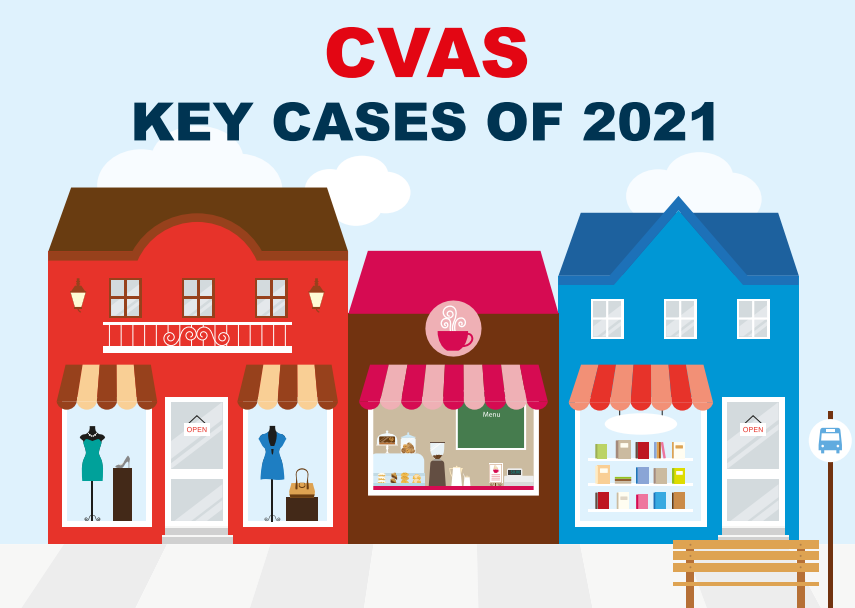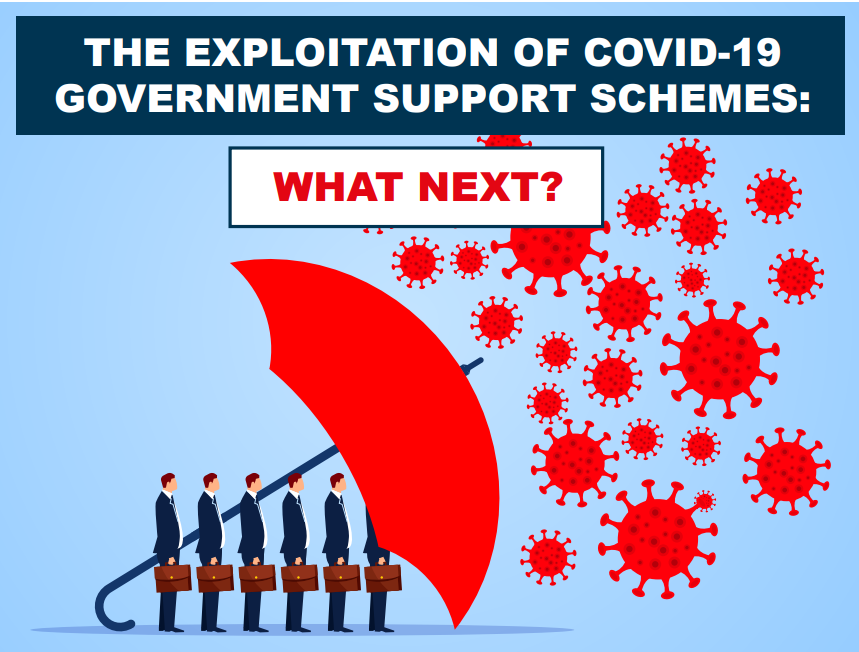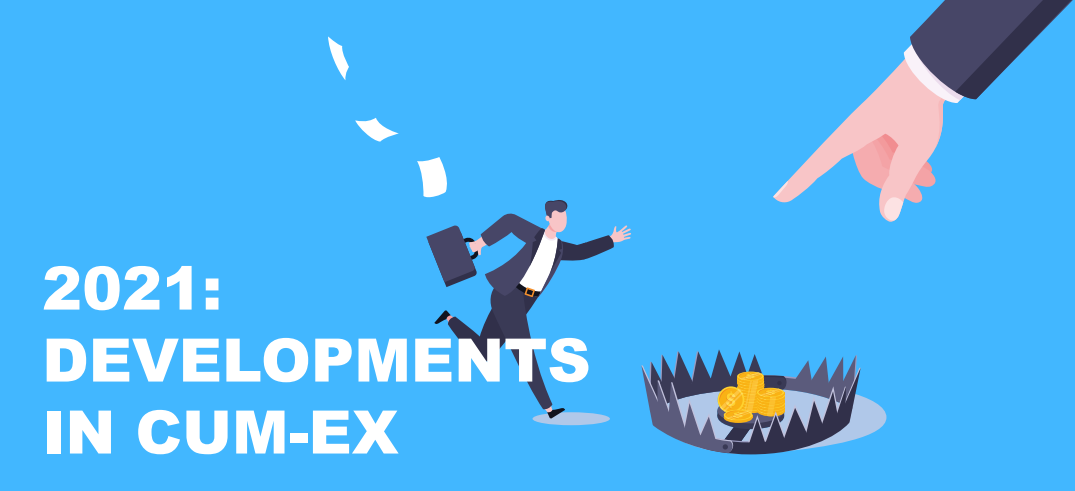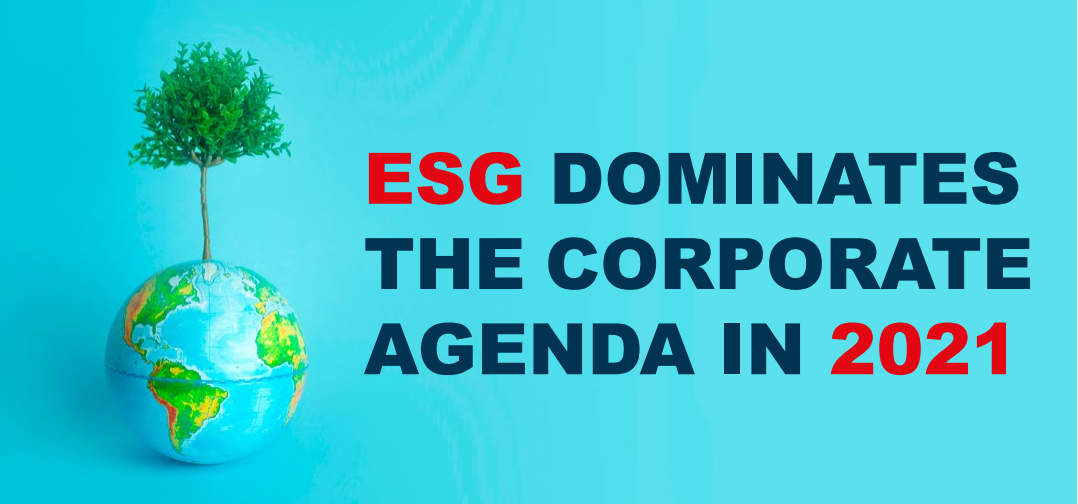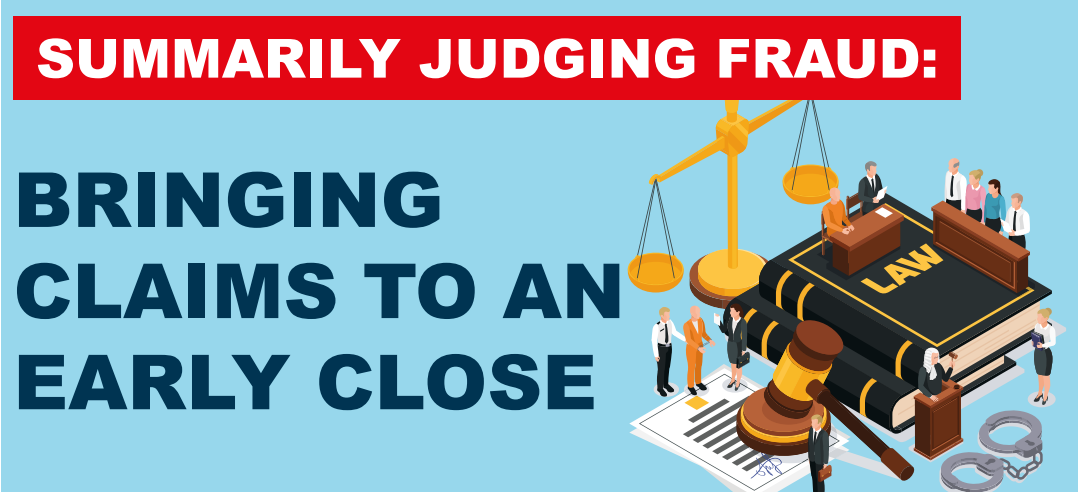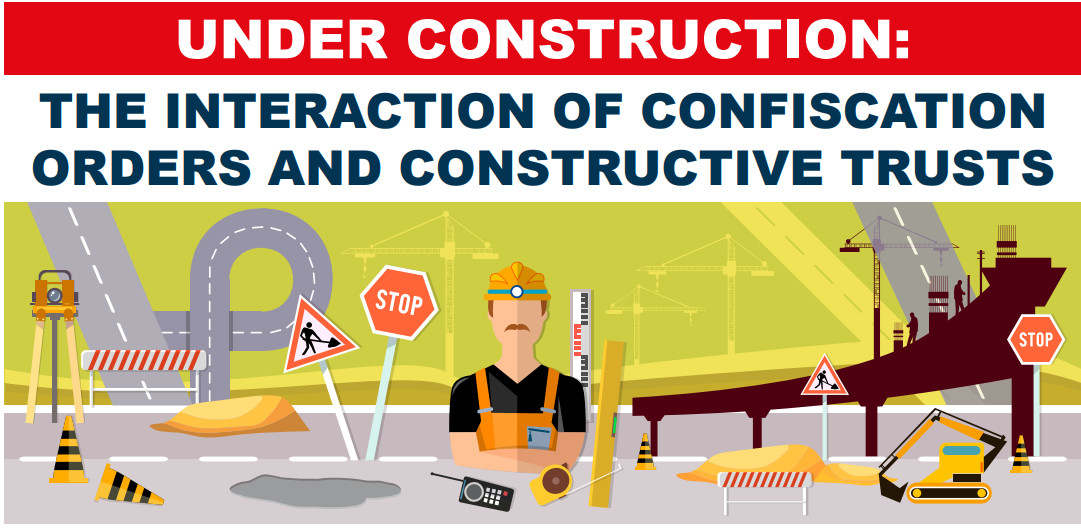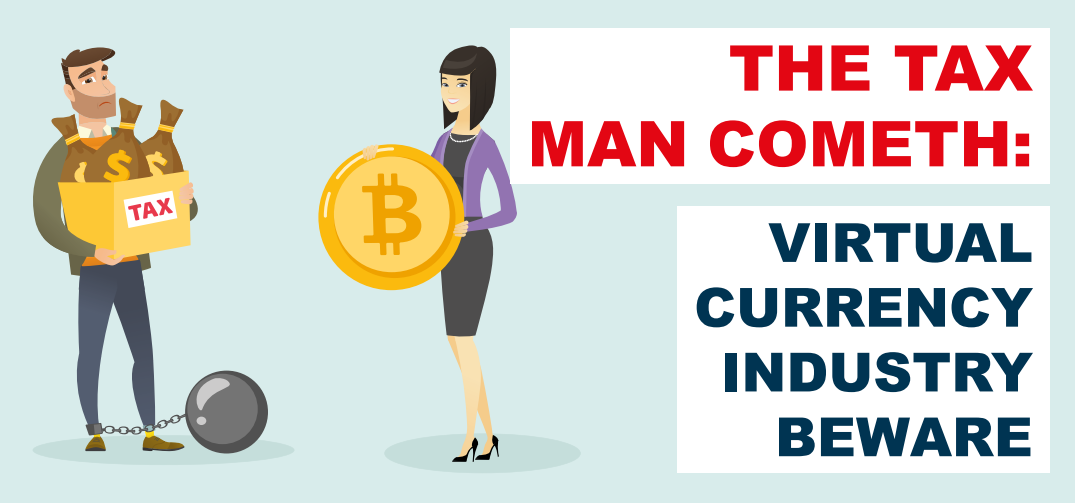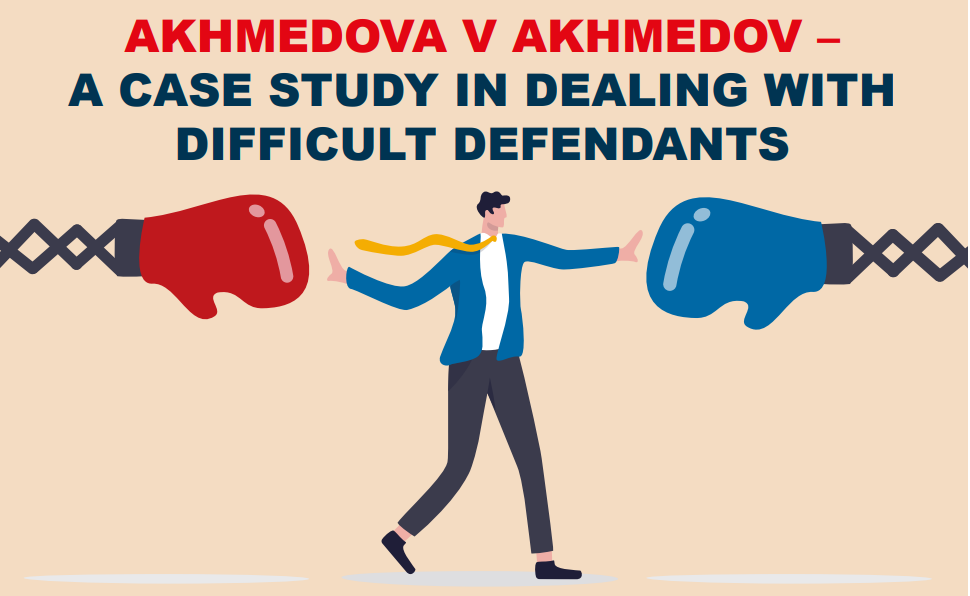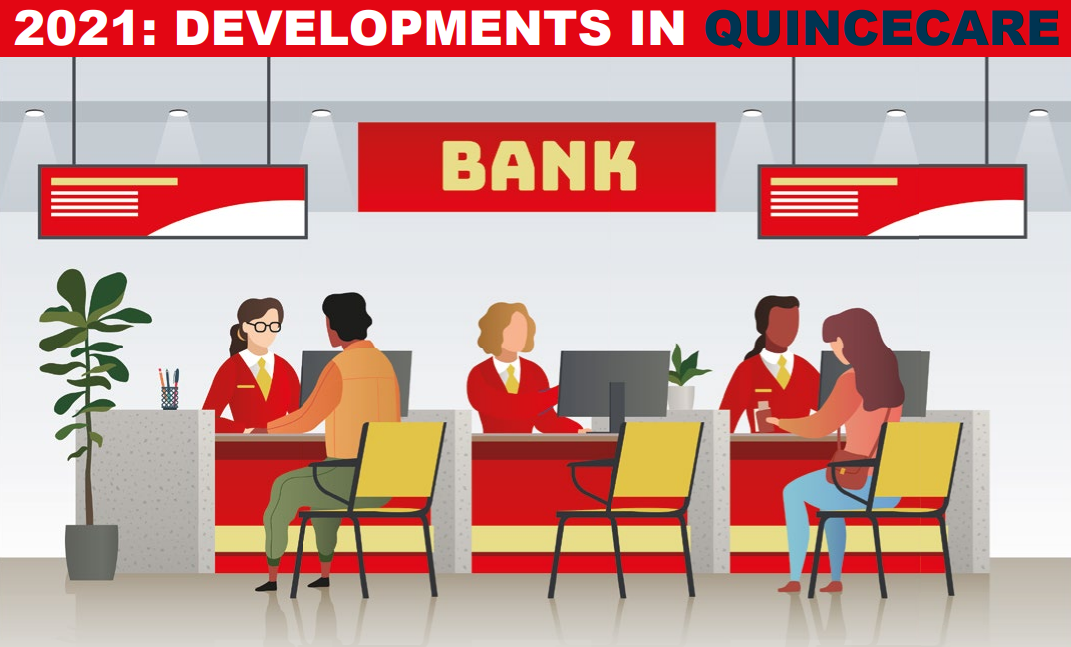Knowledge Hub
Join the Conversation!
Impartial and independent, ThoughtLeaders4 FIRE Knowledge Hub hosts cutting edge industry content and insight.
Email maddi@thoughtleaders4.com to submit content.
Cvas Key Cases Of 2021
Date: 06/01/2022 Type: Articles Community Magazine Topic: FIRE | Insolvency | Civil Fraud | International | Enforcement | Offshore | Asset Recovery |Author: Katy Ferguson and Bethan Cunniffe – Charles Russell Speechlys
With the commercial property market being crippled by the effects of the pandemic, coupled with the pre-pandemic pressures already facing retailers, ‘landlord only’ CVAs have become (and look set to continue to be) an increasingly popular method of restructuring distressed retail businesses. Conjunctively, impaired landlords have galvanised to challenge such CVAs.
In this article we explore the three high-profile retail tenant cases of 2021, providing long-awaited guidance on the legality and fairness of their use by distressed retailers.
The Exploitation Of Covid-19 Government Support Schemes: What Next?
Date: 06/01/2022 Type: Articles Community Magazine Topic: FIRE | Insolvency | Civil Fraud | International | Enforcement | Offshore | Asset Recovery |Author: Simon Jerrum and Beatrice Bray – HFW
In response to the economic disruption caused by the COVID-19 pandemic, the government rapidly introduced several large-scale schemes to support vulnerable businesses. Two of the most utilised government support measures were the Coronavirus Job Retention Scheme (‘CJRS’) and the Bounce Back Loan Scheme (‘BBLS’). Whilst these measures have provided a lifeline for many businesses, they have also facilitated an increase in fraudulent activity. This is evidenced by a reported 24% rise in fraud during the pandemic.1 Now that these measures have ended, what are the government proposals for how to hold those involved in the fraudulent exploitation of these schemes accountable?
2021: Developments In Cum-Ex
Date: 06/01/2022 Type: Articles Community Magazine Topic: FIRE | Insolvency | Civil Fraud | International | Enforcement | Offshore | Asset Recovery |Author: Syed Rahman – Rahman Ravelli
The past 12 months have seen matters come to a head on a number of issues in relation to Cum-Ex.
Putting it in the most straightforward of terms, Cum-Ex describes the trading strategies (also known as arbitrage) that were used to obtain dividend withholding tax refunds on dividend payments. Shares were traded rapidly with (“cum”) and without (“ex”) dividend rights, so that the identity of the actual owner was concealed. An agreement would be made to sell a company stock before the dividend was paid out, but it was not delivered until after the dividend had been paid. This enabled both parties to claim tax rebates, even though that tax had only been paid once, at most. Huge volumes of rapid trading between various parties gave the impression of numerous owners, creating large profits from tax rebate claims. Losses to European treasuries attributed to Cum-Ex are, according to the most recent research, estimated to be approximately €150 billion.
But while the use of Cum-Ex was uncovered by German authorities in 2012, investigations have only gathered pace in recent years. And 2021 has been, arguably, the most significant year in terms of those investigations.
Freezing In The Caribbean
Date: 06/01/2022 Type: Articles Community Magazine Topic: FIRE | Insolvency | Civil Fraud | International | Enforcement | Offshore | Asset Recovery |Author: Paul Kennedy and Nienke Lillington - Campbells
There has been more heat than light in the area of freezing injunctions in the British Virgin Islands (the “BVI”), in particular in recent years so it comes as a welcome relief that the Privy Council have cast a cold eye over the law in Broad Idea International Ltd v Convoy Collateral Ltd [2021] UKPC 24 (the “Judgment”). The Judgment is, as recognised by his Lordship Sir Geoffrey Vos, “ground-breaking” (para. 221).
Although the Judgment provides definitive clarity in relation to some points of uncertainty in the BVI not all of the same points arise in relation to other Caribbean jurisdictions, such as the Cayman Islands. Nevertheless, their Lordships’ statement in the Judgment as to the purpose and scope of interim relief will undoubtedly be useful and relied upon for its general statement that the court is able to modify existing practices to provide effective remedies in changing circumstances, and its more specific, purposive, approach to the use of freezing injunctions.
The background to the Judgment is as follows: the claimant (appellant), Convoy Collateral Limited, sought a freezing injunction in the BVI in support of ongoing proceedings in Hong Kong against the defendant (second respondent), Mr Cho. The Hong Kong proceedings were capable of resulting in a judgment for damages equivalent to US$92 million. A freezing injunction was sought against both Broad Idea International Limited (“Broad Idea”) (the first respondent), a BVI company in which Mr Cho held a 50.1% stake, and Mr Cho personally. Whilst Broad Idea was a company incorporated in the BVI, Mr Cho was habitually resident in Hong Kong.
ESG Dominates The Corporate Agenda In 2021
Date: 06/01/2022 Type: Articles Community Magazine Topic: FIRE | Insolvency | Civil Fraud | International | Enforcement | Offshore | Asset Recovery |Author: Tristan Yelland – Grant Thornton
If 2020 was the wake-up call that thrust the ESG movement into mainstream society’s consciousness, then 2021 was the year in which it came to dominate the corporate and regulatory agenda in the UK and much of Europe. This has significantly increased pressures on ESG targets and results, which will inevitably lead to a greater risk of fraud.
Summarily Judging Fraud: Bringing Claims To An Early Close
Date: 06/01/2022 Type: Articles Community Magazine Topic: FIRE | Insolvency | Civil Fraud | International | Enforcement | Offshore | Asset Recovery |Author: Jack Watson – Wilberforce Chambers
The conventional wisdom when faced with a fraud claim is that the claim will not be subject to early termination whether by way of strike out or of summary judgment in the Claimant’s favour. The nature of fraud claims, involving serious factual findings against the Defendant make them generally inappropriate for summary determination. However, a number of decisions over the past year should serve to remind parties that even when faced with a fraud case, summary judgment and strike out are available to both Claimants and Defendants and in the appropriate case where claims or defences are inadequately pleaded or where the evidence is overwhelming, the court will be willing to bring the litigation to an early close.
Under Construction: The Interaction Of Confiscation Orders And Constructive Trusts
Date: 06/01/2022 Type: Articles Community Magazine Topic: FIRE | Insolvency | Civil Fraud | International | Enforcement | Offshore | Asset Recovery |Author: Hannah Fitzwilliam – Kingsley Napley
In the Crown Prosecution Service v Aquila [2021] UKSC 49, the Supreme Court considered whether a company could assert its rights under a constructive trust in the face of confiscation orders obtained by the Crown Prosecution Service (“CPS”) over the proceeds of crime.
The Tax Man Cometh: Virtual Currency Industry Beware
Date: 06/01/2022 Type: Articles Community Magazine Topic: FIRE | Insolvency | Civil Fraud | International | Enforcement | Offshore | Asset Recovery |Author: Valerie Charles and Kyla Curley – Stoneturn
The anonymity offered by the cryptocurrency market may soon be no more, and it may not be long before regulators are knocking at your door. In addition to the DOJ and the SEC, the Joint Chiefs of Global Tax Enforcement (J5) and the Internal Revenue Service (IRS) have made it clear that they are increasingly focused on cryptocurrency entities and efforts to facilitate or enable tax evasion.
Akhmedova V Akhmedov – A Case Study In Dealing With Difficult Defendants
Date: 06/01/2022 Type: Articles Community Magazine Topic: FIRE | Insolvency | Civil Fraud | International | Enforcement | Offshore | Asset Recovery |Author: Anthony Riem and Andrew McLeod – PCB Byrne
In this article, Anthony Riem and Andrew McLeod, Senior Partner and Associate at the London firm of PCB Byrne LLP, review the recent litigation in the judgment of Mrs Justice Knowles in the Family Division of the High Court in Akhmedova v Akhmedov 2021 EWHC 545, [2021] 4 WLR 88 (Fam), and the lessons that can be learned about dealing with a recalcitrant defendant in civil fraud proceedings. Such defendants seek to ignore their obligations to the Court or even actively frustrate the Court’s orders and processes. That type of litigation conduct might be seen in the short term to have benefits, in disrupting or even derailing claims against them. Yet the various powers of the English court to grant interim remedies enable it to interrogate a defendant’s claims and if necessary find other methods to compel a defendant to comply with their obligations. These present not only the ability to counteract a defendants’ efforts to defeat the court’s processes, but the opportunity to convert that litigation conduct into a successful outcome at trial.
2021 Development In Quincecare
Date: 06/01/2022 Type: Articles Community Magazine Topic: FIRE | Insolvency | Civil Fraud | International | Enforcement | Offshore | Asset Recovery |Author: Kit Smith and Justina Stewart
The Supreme Court’s 2019 decision in Singularis1, the first in which a breach of Quincecare duty2 was found, brought about a rejuvenated appetite for a duty that had lain relatively dormant for decades. This year’s cases have further tested the limits and application of the duty.
Category filter
Topic filter
Sign up for alerts

Our FIRE Corporate Partners


Contact Us
In order to suggest topics or write for our knowledge hub please contact Danushka on +44 (0) 20 3580 5891 or email danushka@thoughtleaders4.com






